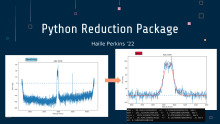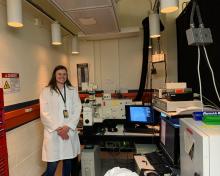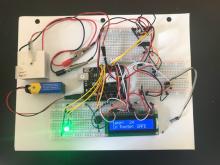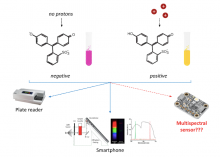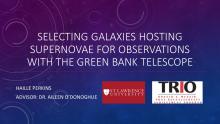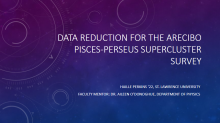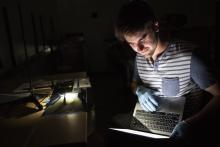Summer Internship
In February of 2022, the ALFALFA research group began observing galaxies hosting supernovae with the Green Bank Telescope in West Virginia. The resulting and incoming data requires reduction to extract important information, such as velocity, velocity width, and flux. In this project, we worked on implementing quality-of-life changes to an existing Python package to improve the experience of the researchers that will be using it.
